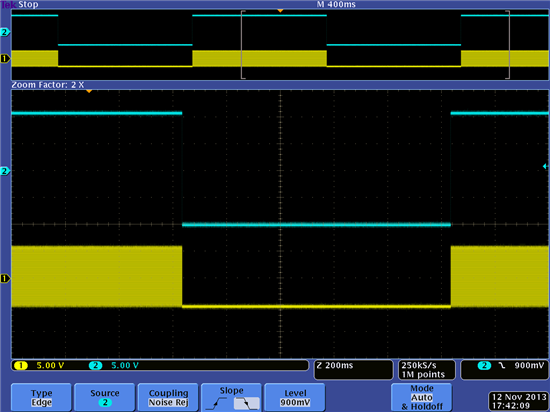Hi,all,
When I test uart1 auto hardware flow control function on beaglebone black board with ti-sdk-am335x-evm-06.00.00.00-Linux-x86-Install(linux-3.2.0-psp04.06.00.11)SDK package.
It failed. I notice that "Features Not Supported Hardware Flow Control" in AM335x-PSP 04.06.00.11 Features and Performance Guide.
I have two ideas:
1) In ti-sdk-am180x-evm-05.05.01.00-Linux-x86-Install(linux-2.6.37-psp03.21.00.04) SDK package, uart use 8250 serial driver and auto hardware flow control works well. So, how to use 8250 driver on AM335x. Could somebody give detailed guidance?
2) I have set auto hardware flow control in uart registers successfully. While RTS doesn't work. I think linux serial driver don't stop reading data from FIFO. How to use auto hardware flow control?
BTW, I have seen hardware flow control post on e2e website, http://e2e.ti.com/support/embedded/linux/f/354/p/162075/617414.aspx#617414. But not enough details to solve the problem.
Best Regards,
Dragon


